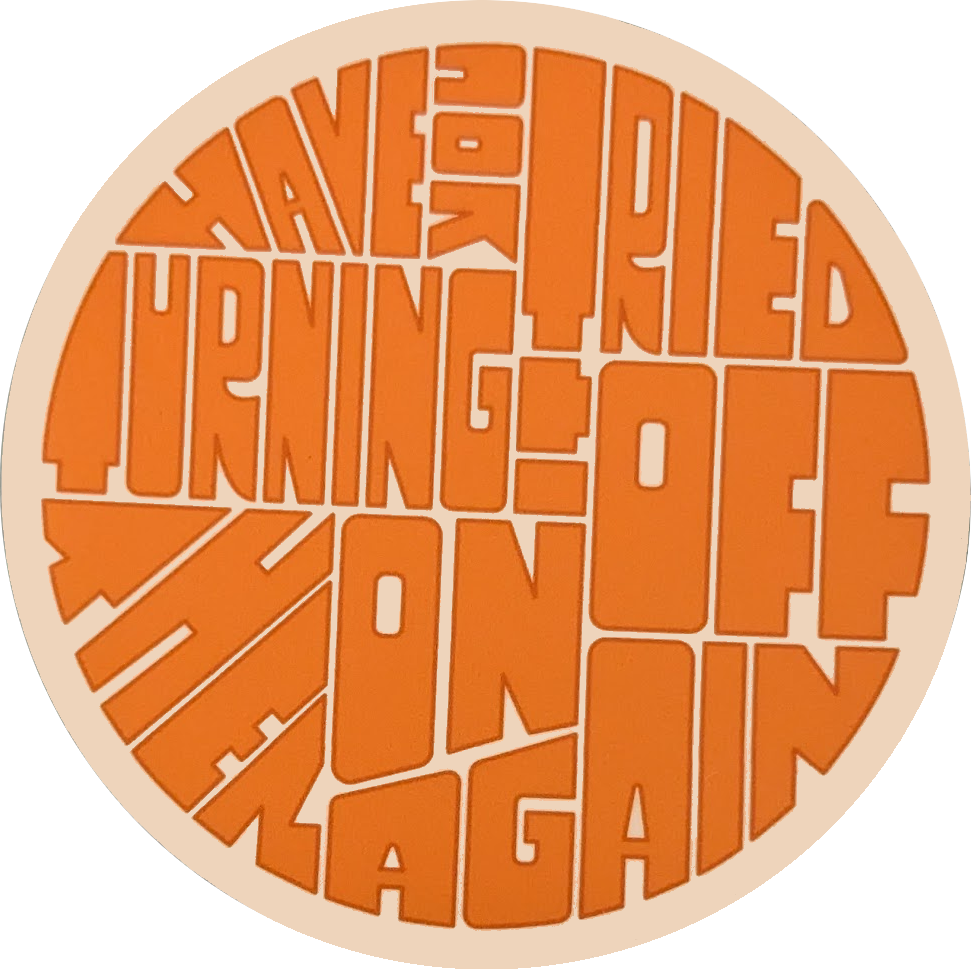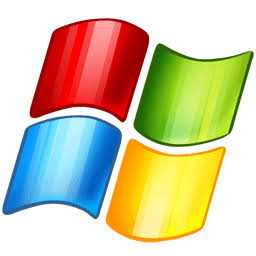It peaked at 4.05% in March. The last 2 months it went just below 4% as the Unknown category increased. For June the reverse happened, so 4.04% seems to be the real current share of Linux on Desktop as desktop clients were read properly/werent spoofed.
Question: Why is BSD so low? (And why/what is unknown?)
There really isn’t a compelling argument for BSD other than interest and hobby. It doesn’t have the industrial use case Linux has.
Because it’s not overly popular as a desktop os, you are far more likely to see it in certain appliances and server applications etc, none of which will show up in a pagevisits based statistic.
Less hardware support than Linux without enough substantially better about it to make it anyone’s clear preference. Which isn’t to say it doesn’t have advantages over Linux. Just that the average BSD user is going to be able to easily swallow their pride and run Linux if things went wrong with a BSD install (trust me, I’ve literally done this, these people do exist)
The BSDs got screwed over by a lawsuit in the 90s that made a lot of people hesitant to use them (coincidentally leading to the creation of the Linux kernel). Inertia carried it from there and Linux ended up getting more hardware and software support, which is the primary reason that people pick Linux over the BSDs now.
I am still hoping it will hit 10% market share within my life time. I remember when it was predicted to hit that in 2010, obviously it didn’t happen*. Of course for me personally, the year of the Linux Desktop was 2007 when I was finally able to use it as my main OS at home, I tried it before many times since 2003.
* not counting systems that use the Linux kernel but aren’t considered a traditional GNU+Linux desktop.
not counting systems that use the Linux kernel but aren’t considered a traditional GNU+Linux desktop.
Does that mean you don’t count Alpine towards Linux market share? It mostly doesn’t use any GNU stuff.
You can also compile the kernel with LLVM instead of gcc, use musl instead of glibc, and use BSD coreutils instead of GNU coreutils.
Do they use the BSD userland instead? Interesting…
Perhaps the definition isn’t good enough or accurate. What would you call a system that perhaps uses Darwin kernel or Hurd plus GNU user land, or any combo of.
Do they use the BSD userland instead? Interesting…
I think Alpine uses Busybox, but it’s feasible for a Linux distro to use BSD coreutils. Not sure if any do that, though.
I am still hoping it will hit 10% market share within my life time.
Do we really want that?
We have it pretty good right now. I would actually say we’re living in a golden age of desktop Linux: there’s constant innovation, good support, you get to do pretty much everything you need, while flying under the radar.
Linux has won the majority of the industry (servers, mobile etc.) so it’s not like it has anything left to prove.
If it starts getting noticeable on the desktop I fear we’re just gonna get negative attention. Users who take and not contribute, because Windows had taught them to be entitled. Unwanted attention from Microsoft, who I bet are not going to be doing nice things once they start getting paranoid about it.
I really don’t think that large companies like Adobe will care about Linux even at 10% and even if they did, they are a super toxic company nowadays, the least we get to interact with them the better.
There are many games & software with no Linux support, not to mention AC blocked games. Increased marketshare could change a thing or two, at least.
Do we really want that?
As long as competition and choice continues to be the mantra of the Linux desktop, then yes, I’d love to see more and more people using it.
We have it pretty good right now. I would actually say we’re living in a golden age of desktop Linux: there’s constant innovation, good support, you get to do pretty much everything you need, while flying under the radar.
Very true.
Unwanted attention from Microsoft, who I bet are not going to be doing nice things once they start getting paranoid about it.
I mean, Ballmer called Linux a cancer pretty early on, so that ship sailed a long time ago.
I really don’t think that large companies like Adobe will care about Linux
Once they start losing large sums of money due to people switching and finding viable alternatives, they certainly will care. Right now Adobe has one main thing going for them – apathy and muscle memory of the aging demographic of their users. That will eventually change.
the least we get to interact with them the better.
Absolutely. I used to be an Adobe fan, back when Kevin Lynch was a part of it, and I was a Flex developer. Then Jobs wrote his thing about Flash, and a year later, not a month after Jobs’s death, Adobe dumps Flex – and literally overnight my position changed from Flex to HTML5 and Java.
Windows 11: Add advertisement to the start menu, add remote Artificial intelligence to your daily live. Require new CPUs and motherboards / hardware, ignoring the market for old computers.
What will they do next?
- More advertisement.
- More features that require an always on internet connection?
- Forced restart for software updates
This is why I expect Linux share to slowly increase until the old computers die and you will not be allowed to choose to boot another operating system besides Windows on your Microsoft-Copilot+ PC that would be your only option.
Windows decline has nothing to do with any of the actual features.
It is declining because fewer people are buying PCs anymore. Every one is using a mobile device or tablet.
This is also the reason they are squeezing windows harder to make up for the down turn.
But we’re talking about proportions of Desktop operating systems. People using the desktop less might decrease (or slow the increase) of total desktop usage; but there would need to be more reason that just that for it to impact Windows disproportionately.
This is clearly a statistic about PCs, otherwise the share wouldnt be ~73% windows. So the decline of the desktop PC doesnt really matter here
The people who are more likely to retain a PC and not just use a phone, are more likely to be tech literate power users.
This selects against casual windows users, and selects for hardcore Linux users
The thing is that most Windows users don’t care and will continue to use it. People like you and I know about the benefits of Linux, but sometimes we overestimate how much regular users care about the OS they’re using.
Forced restart for software updates
If anything, they’re moving in the opposite direction. Windows Server 2025 is going to support hotpatching, which means that system updates can be applied without needing to reboot. Not sure if the technology will come to consumer Windows though.
Require new CPUs and motherboards / hardware, ignoring the market for old computers.
How long do you expect legacy hardware to be supported for?
I dunno, longer than 6 years, which is about how long it took for Skylake to go from brand new to not being supported by the new version of Windows?
And I honestly can’t think of a time that’s even happened before when you could get 10 running on 10+ year old processors as long as they were powerful enough. And the difference between a Core 2 Duo and a Skylake i7 is vastly more than between the Skylake i7 and the current generation.
The issue is not that the hardware stops getting support, either… It’s that the hardware is expressly and needlessly being blocked long before it’s no longer useful. My old Skylake is now 9 years old and more than capable of running as a moderate power machine on current workloads, other than being forcibly blocked to encourage me to put it in a landfill so I can continue the consumer march for more stuff to feed the corpos.
It’s wasteful. And for the most part, all that’s needed is for the old drivers to be allowed to function. And to make things like TPM 2 be optional, especially considering I don’t think you’re even required to actually use it for Windows 11, just have it.
Interesting… I didn’t realise Skylake isn’t supported. I agree with your comment. I thought people were talking about much older equipment.
TPM 2 has been around since 2015ish and I wouldn’t be surprised if Windows starts relying on it more heavily. A lot of businesses have already required employees to use computers with TPM 2.0 for a long time, and enterprise use is a big focus for Microsoft.
Next:
-
Must always be online
-
Cost is now $9.99 per month (free with commercial breaks. For now of course.)
-
Everything is stored online (60GB free, $5.99/month to up it to 199GB, $49/m for 400GB).
-
I switched to librewolf so I will now show up as windows
Same, there must be a percent or so of Windows actually being Linux instead.
Yeah me too, safety in numbers. Maybe if Linux desktop gets bigger than Windows they’ll swap it around 👨💻
After seeing Garuda Linux set my user agent to Windows, I set my Windows install user agent to Linux.
Seeing Twitch.tv login break after changing my user agent was hilarious
What did it say? Why does it break?
I unspoofed Librewolf back to Firefox + Linux. That way I’m not contributing to Chrome and Windows market share and perceived dominance. Plus the more people don’t spoof, the less of a need there will be to actually spoof at all as the Linux market share increases.
The problem is that websites sometimes change there behavior.
I wonder what’s on the ‘unknown’
That 6% attributed to “unknown” is the one true OS, the only one ordained by the Almighty… Temple OS!
True Temple OS has no networking
It does have networking if you truly believe!
Heretical, you will burn in hell
Based security approach
Bare Metal, they are injection Ethernet cable directly into their bloodstream.
In essence Netrunner then?
Amiga.
likely content blockers preventing the trackers from working properly and invalid user agents. So i would expect about the same ratio of usage on there as well. Maybe very slightly more Linux since maybe the users are more likely to tinker with their browser configs and install content blockers, but even there Id say its an extremely slim minority of even linux users who do that
StatCounter also sometimes miscounts when new versions of windows or macos come out. At one point (I think at windows 11 release) there was a huge dip in windows 10 users and a huge gain in “unknown” and it was quickly fixed.
The combined forces of microsoft reaching new heights of greed and intrusion, plus the massive dev efforts for the best ever GNU Linux and Proton 📈📈📈
Microsoft set themselves up the bomb
Microsoft: As long as Adobe, Office, Autodesk are on my side, I have nothing to worry about.
All your corporate greed are belong to us
I use Linux for personal use, and Ive been using windows for work due to necessity.
There is one app I need that does not support Linux. I contacted their support asking about a Linux version and they suggested using waysroid to run the android version of the app.
So, when I have free time I’m working on switching things over.
My main motivation is Microsoft pushing ads everywhere and being aggressive about using online accounts and stuff that like.
Whats interesting is that both income , profits and the stock have been growing well for years, maybe they are just monetizing more aggressively because they can’t compete on product quality (unlike other markets that are still evolving, AI and Cloud). not a ton of stuff to improve in operation systems it seems.
There are system dialogs that have unused space for ads, still plenty to improve!
In all seriousness, cloud (azure) and office subscriptions blew up and account for like 70% of MS profits. They know the Windows experience is lacking, but when they already capture so much of the market and it’s such a small slice of revenue, they have no incentive to improve.
deleted by creator
deleted by creator
If only linux gaming and thermal became more and more robust, in few year I will switch too with pleasure. Adobe suite can still be a problem but not for me anymore at least.
Playing on Linux for a year now. I wouldn’t say it was flawless, but a lot has to do with me learning how to do it correctly. Like using steam and heroic game launcher, trying a different version of Proton or wine, and it’s beginning to be very easy now that I have the right recipe so to say.
Good to know, the main problem is that a good % of gamer doesn’t have time to a tryhard with different version of things, drivers… I have skill to setup a linux gaming machine but I don’t have time to do this. If Linux gaming becoming more and more straightforward (not as windows but similar, starting from gpu driver), more and more ppl could ditch at least windows second partition.
Statcounter numbers are to be taker with boulders of salt. you can look at many metrics and especially when you filter by country. you will see a lot of erratic unexplained changes. jumping down and then a few months lather up by sometimes up to double digits.
OK, who did you guys bully over basic tech support questions?
Can we commit to only posting about round number percent changes?
No, we will not stop
4.040000000000000000000001!
We could contact that person as a community
Based on a world population of 8 billion, that would be roughly 0.00000000000000125% of a person. And is also not even representable in a 64 bit float so I had to do this math in my head (Calculator just says 0)
No, we have to post these when it’s the year of the Linux desktop
What’s interesting is that multiple trackers are now saying it’s above 4 percent. Last time something was posted, people questioned the data and where they got their data (which they should). Now there’s multiple sites showing a real increase.
Sorry, I stopped playing factorio on my work Linux computer. I will play next month to get us back up.
Don’t worry, I’ve been playing plenty of Linux factorio for the last few weeks to make up for it.
This is probably a good place to ask, but when ditching windows for Linux, what’s a good distro to go with? Preferably one that has a good WINE interface.
I’d personally recommend Linux Mint Debian Edition. After distro hopping for a bit, it has personally been the best one for working right out of the box, both for my games and for my peripherals.
I like the UI, it’s about at my tech level/needs. I have little to no complaints about it, which is as good as it gets.
This is one of many comments I’ve seen on several posts that have recommended Mint. I’m currently playing around with Ubuntu, just because it’s the one I’m most familiar with from back in the day, but since the drive I’m using is temporary I might do a wipe and then load Mint and see how that operates.
Preferably one that has a good WINE interface.
IIRC, Zorin OS handles that the best. Furthermore, it’s actually a distro that targets beginners (like e.g. Linux Mint does). So, overall, it’s a great pick.
Of course, don’t just expect that all your Windows software just works on Linux with WINE. Instead, search if they’re somehow available on Linux and/or work through WINE. If that’s not the case, then ensure that an alternative is available that you’re willing to use instead.
Finally, ensure that the distro you choose, actually works great with your hardware.
I’ve seen a lot of people move to Mint or Pop_OS or Kubuntu. They’re Debian based so updates are pretty stable.
I personally ended up with EndeavourOS using the KDE desktop environment. I have a steam deck, so this felt very similar to me. This is Arch based so sometimes updates break things, but I’ve had more success here.
Also remember that no distro is problem-free, but neither was Windows. The longer you commit, the easier it gets.
EDIT: If you’re hesitant to fully commit at first, I also recommend dual booting with Windows. Over time you’ll use it less and less until one day you feel like reclaiming the disk space.
If you’re hesitant to fully commit at first, I also recommend dual booting with Windows. Over time you’ll use it less and less until one day you feel like reclaiming the disk space.
I have a 10 year old laptop that I had to get rid of the hard drive for and am installing an nand drive and want to use to re-familiarize myself with Linux on it. Especially since my main desktops are too old to upgrade to Windows 11(not that I’d want to anyway) and I figure going Linux now will save me from scrambling when the pooch gets thoroughly screwed after Win 10 updates end.
why do we negate chromeos we are 10% at least so there we really are
For starters doesn’t it only run apps from the Google play store?
and what kernel would you say it and android runs? relevant?
This is the format collision discussion that has no solution so far. A tablet that runs windows is counted as Windows. A laptop that runs android does not. Neither does an android cellphone. It all boils down to web browser user agent fuckery. This is why steam’s numbers are more reliable than other sources, they’re direct hardware surveys.
But the point is that a steam deck is not (but in a way it is basically just) a PC. There are tablets than run desktop interfaces and now there are laptops that can be used as tablet. Eventually the artificial mobile vs. PC/desktop/laptop schism will stop making sense.
404: Not found
Where do they get data from?
From cookies.
What kind? Personally I wouldn’t trust any kind with raisin.
What about peanut butter? Or are you more of a salted chocolate kind of person?
They get the data from user-agent strings, so it may not be 100% accurate
User agent strings are frozen these days, at least in Chrome. They still have the browser major version and OS name at least, but Windows will always report Windows 10, Android will always report Android 10, MacOS will always report 10.15.7, and Linux is just “Linux x86_64”: https://www.chromium.org/updates/ua-reduction/
User agent strings are essentially deprecated and nobody should be using them any more. They’ve been replaced by User-Agent Client Hints, where the site can request the data it needs, and some high-entropy things (ie fields that vary a lot between users) can prompt the user for permission to share them first.
Oh nice. Googie once again deciding for the entire Internet what it should be using and forcing it down everyone’s throats.
User agents were commonly used for the wrong reasons - fingerprinting, sites that block particular browsers rather than using proper feature detection, etc. so I’m glad to see them slowly going away.
Shit started hitting the fan when everyone started faking Netscape’s “Mozilla” user agent. Then “KHTML, like Gecko” and after that every fork kept the originating name in the string and extended it.
@Tixanou @Madiator2011 Plus they are basing themselves off of a sample of websites, so it’s like polls it’s made to be representative but cannot be 100 % accurate





















